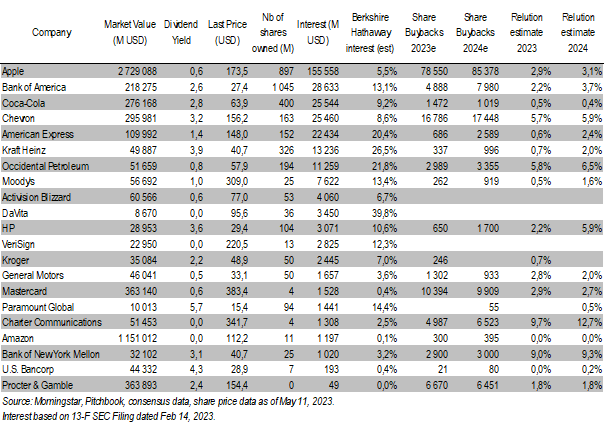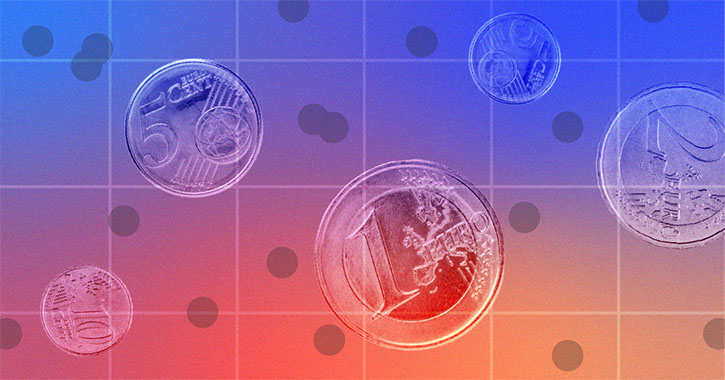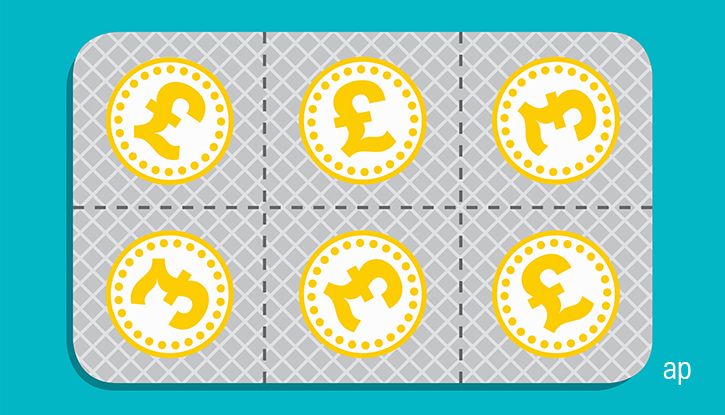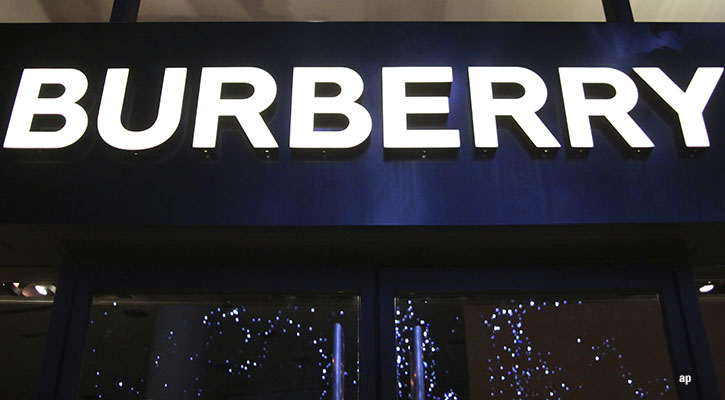.jpg)
At the annual meeting of Berkshire Hathaway [BRK], which took place on May 6 in Omaha, Nebraska, there was one question no one bothered to ask Warren Buffett any longer: would the company, which is awash in cash, consider paying a dividend?
For 58 years this question, when raised, has received the same answer: no.
This time, the only moment Buffett mentioned the D-word was when, asked about Paramount [PGRE], one of Berkshire’s stock holdings, he said: "it’s never good news when a company cuts its dividend dramatically".
Buffett doesn’t like to pay dividends, but he loves receiving them.
This recent article in the Wall Street Journal estimates that Berkshire Hathaway in 2023 is expected to receive $5.7 billion in dividends from its $300 billion equity portfolio.
Most of the money ought come from its holdings in Apple [AAPL], Bank of America [BAC], Coca-Cola [KO], Kraft Heinz [KHC], Chevron [CVX] and American Express [AXP]. Berkshire Hathaway happens to be among the top shareholders in most of those companies.
This money stream comes on top of buybacks – often massive ones – by some of those same companies. Apple just authorised a $90 billion share buyback program.
Berkshire itself has jumped at the opportunity of buying back its own shares when they are attractively valued. Last year, it spent $8 billion on share buybacks, after spending $27 billion in 2021 and $25 billion in 2020.
Between that and the stock's astronomic long-term price return, Berkshire Hathaway’s shareholders certainly don't have many reasons to complain. Under the stewardship of Buffett and longtime partner Charlie Munger, the company has been very astute at allocating capital.
Through M&A transactions, Berkshire has been reinforcing its vast portfolio of businesses, spanning from energy to insurance, retail and industrials. Most of the businesses Berkshire controls are growing, boasting decent profit margins and return on capital.
In 2022, the company posted a profit margin close to 12% and generated a free cash-flow of $22 billion. Its share price rose 3.3%, outperforming the S&P 500 index by 23 percentage points.
At the end of the first quarter of 2023, Berkshire’s operating profit was $8 billion on revenue of $85.4 billion. Its share price has risen by about 7% this year, underperforming the market by two percentage points.































